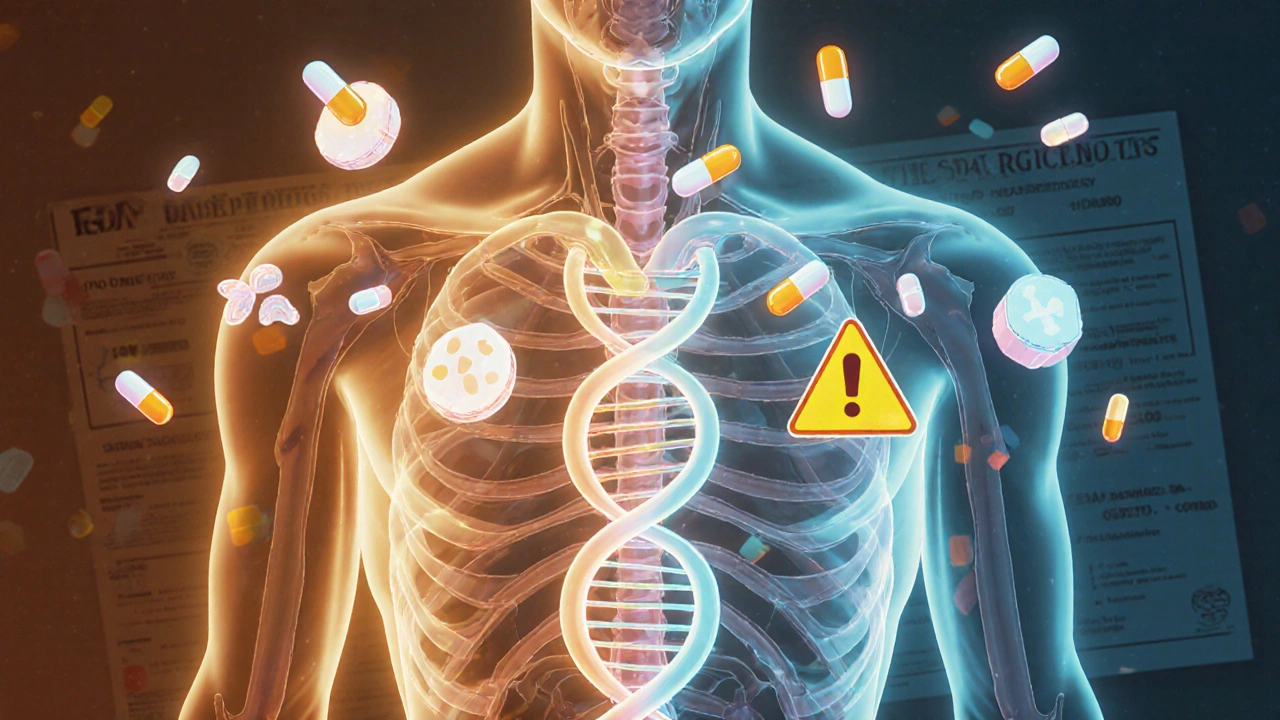Genetic Drug Side Effects: How Your DNA Affects Medication Reactions
When a medication causes unexpected side effects, it’s not always about dosage or bad luck. It could be your genetic drug side effects, how your inherited DNA changes the way your body processes medicines. Also known as pharmacogenomics, this field explains why one person gets dizzy on a standard dose of a drug while another feels nothing at all. Your genes control the enzymes that break down pills in your liver, the transporters that move drugs into cells, and even the receptors those drugs target. A tiny variation in your DNA can turn a lifesaving treatment into a dangerous one.
This isn’t science fiction—it’s happening right now. For example, some people carry a gene variant that makes them process codeine too quickly, turning it into dangerous levels of morphine. Others with a different variant barely break down warfarin, making them prone to dangerous bleeding even on low doses. These aren’t rare cases. Studies show over 90% of people have at least one gene variation that affects how they respond to common drugs like antidepressants, blood thinners, or painkillers. The same goes for statins—some folks get muscle pain from them because of a gene called SLCO1B1, while others never feel a thing. And it’s not just about side effects. Your genes can also make a drug completely useless. If you’re on clopidogrel (Plavix) and have a certain CYP2C19 variant, your body can’t activate the drug at all, leaving you unprotected from clots.
That’s why knowing your genetic profile can change your treatment. Doctors don’t need to guess anymore. Tests for these gene variants are already used in cancer care—like with ribociclib for breast cancer—or when prescribing antidepressants. Even something as simple as a chewable aspirin can be affected by your DNA. If you’ve ever been told a drug "didn’t work" or "made you sick," it might not be you—it’s your genes. And the good news? We’re getting better at testing for this. Some hospitals now screen patients before giving certain meds. You don’t need a PhD to understand this: your body’s reaction to pills isn’t random. It’s written in your DNA.
Below, you’ll find real-world examples of how genes shape drug responses—from antibiotics like ampicillin to heart meds and mental health treatments. These aren’t theory pieces. They’re guides written by people who’ve seen the effects firsthand. Whether you’re wondering why a drug failed for you, or why your cousin had a bad reaction to something you took without issue, the answers are here.

Genetic Factors That Increase Susceptibility to Drug Side Effects
- by Colin Edward Egan
- on 29 Oct 2025
Genetic differences can make medications dangerous for some people and useless for others. Learn how genes like CYP2D6 and HLA-B*15:02 affect drug reactions, which side effects are most predictable, and what you can do to stay safe.
